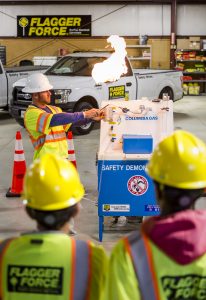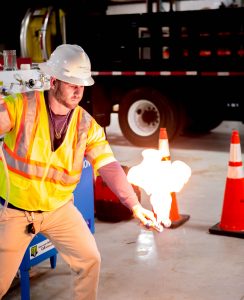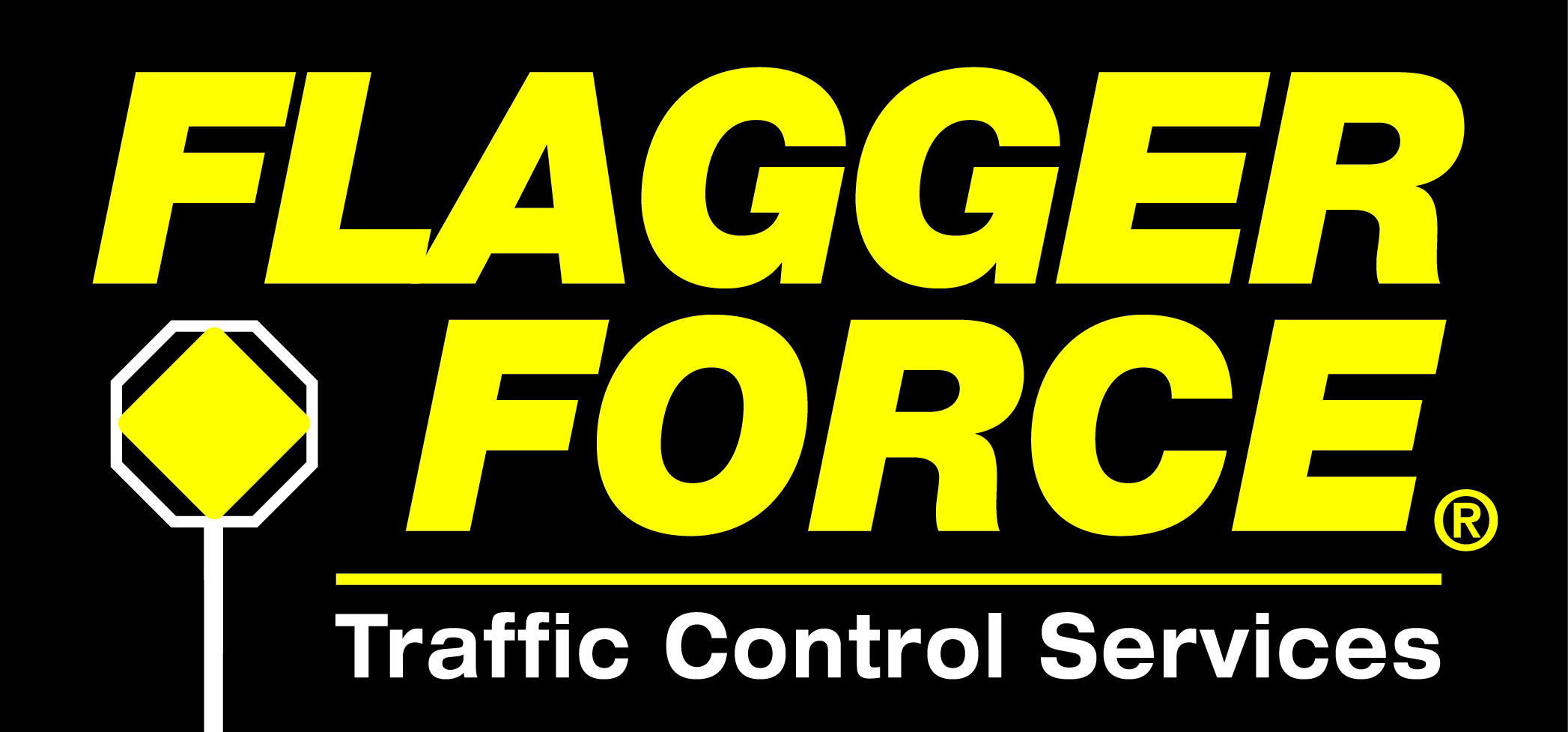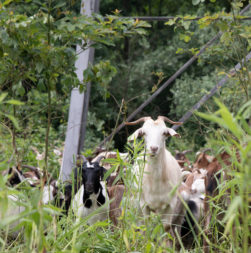On a cold and cloudy afternoon, over two dozen traffic control professionals stood in a
warehouse with their eyes fixed on burning gas. Stephen Thomas, the Damage Prevention
Execution Leader for Columbia Gas of Virginia, facilitated a knowledge exchange with
Flagger Force to help connect the two companies’ strong safety cultures.
Safety is the shared priority of both the utility and traffic control industries. When partners
share the same risks, it’s critical that both understand the other’s perspectives on safety. Taking the time to learn from each other creates a work relationship that fosters clear communication and mutual respect. This kind of relationship is the foundation of a safe
safety. Taking the time to learn from each other creates a work relationship that fosters clear communication and mutual respect. This kind of relationship is the foundation of a safe
job site.
With this mentality in mind, Thomas spent an afternoon with Flagger Force’s Richmond Operations and Training Facility, educating them on the rules and regulations of fuel maintenance, the prevention of natural gas damage, the material science behind what can happen when gas is released, and how gas can act and react in the atmosphere.
“Taking advantage of face-to-face educational opportunities, especially those with our industry partners, creates strong relationships. We want people to internalize and take a personal interest in the safety of clean-burning fuel sources, and this presentation fosters that kind of engagement,” says Thomas. “These demonstrations are becoming more
popular and offer a more meaningful and interesting way to stay engaged with our partners.
It means a lot to me personally, and Columbia Gas, to bring more awareness on how
to safely handle and manage these reliable fuel sources.”
THE IMPORTANCE OF PARTNERSHIPS — HOW WE CAN WORK
TOGETHER BETTER
Cross-training among industry partners has numerous benefits, especially when that training is
centered on safety cultures. This collaborative approach ultimately leads to safer job sites,
including work  zones.
zones.
“To operate safely and effectively, utility companies need to commit their full focus to their specific work and leave traffic safety to the traffic control partner. This allows the utility crew to focus on the job at hand,” says Flagger Force’s Safety Manager, Josh Foltz. “When a traffic control partner has a solid understanding of their client’s work, they are able to better anticipate their needs, which naturally leads to safer work zone environments.”Having a traffic control partner better understand the end goal and safety risks of their utility partner gets more eyes in the field that can spot potential hazards. The key to sharing our safety cultures is to understand each other’s safety needs so we can all accomplish one common goal — to keep our communities moving.
“On a job site, there are a million pieces working together forming one puzzle — a job well done,” says Thomas. “Not having to focus on traffic control takes the worry off of the client, so they can perform their job better. Having a partner with the ability to notice something is wrong and how to properly address it also aids in this concept and is one of the goals we
strive to achieve through our education opportunities.”
UNDERSTANDING THE SCIENCE — THE MORE YOU KNOW
Part of Columbia Gas’s presentation featured a live demonstration of what can happen when
gas is released into the atmosphere. Possessing a clear and more complete perspective of the 
types of reactions associated with these fuels is paramount in deciding how to respond to a potential hazard.
Those outside the gas and energy industries may not realize the property difference between propane and natural gas. Propane, a larger molecule, is heavier than air and falls when released, while natural gas is lighter than air and rises. This is important knowledge to have if one of these gases has an unplanned release at a job site. The live demonstration brought the properties of these fuels to life for everyone at the training, creating a vivid and memorable connection between partners through safety.



